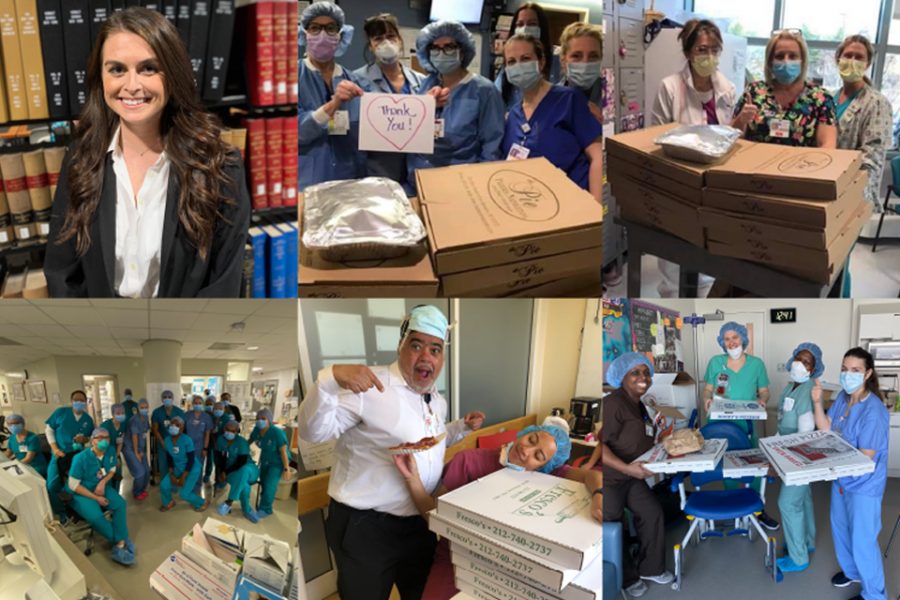Jennie Miller ’20 Gives Back
A self-described “Jersey girl born and raised,” Jennie Miller has never been one to sit on the sidelines. She knew she had to do something to support her lifelong best friend, an ER nurse working on the frontline of the COVID-19 public health crisis.
“Though she never complained, my friend was understandably scared and overwhelmed,” Miller says. “So, together with some friends, I decided to make her day a little brighter and delivered pizza to her unit at the Hackensack University Medical Center during their Saturday shift. They were so appreciative, I wanted to do it again—but on a bigger scale.”
Miller, who earned her undergraduate degree from Rutgers University in Human Resource Management and Communications, took the initiative to her social network. “The goal was to provide pizza to as many healthcare heroes, in as many hospitals throughout New Jersey and New York, as I could,” she shares. “I presented the opportunity in three ways: First, I asked people to donate money. Second, I asked them to connect me with doctors, nurses, and other hospital workers I could support. Finally, even if people couldn’t contribute funds, I asked them to help spread the word about the effort.”
Thanks to the generosity of donors, including many in the St. John’s Law community, Miller’s initiative was a big success. Among other recipients, she provided pizza and meals to:
- CTICU, New York-Presbyterian Hospital, Milstein Building, New York, NY
- 5West Unit, Hackensack Meridian Health Palisades Medical Center, Union City, NJ
- CCU, MICU, and Dialysis Unit, Hackensack University Medical Center, Hackensack, NJ
- COVID-positive unit, Hospital for Special Surgery, New York, NY
- 3N, 3E, Labor and Delivery, PP, NICU, and Respiratory Therapy Units, St. Charles Hospital, Port Jefferson, NY
- MICU, Mount Sinai Hospital, New York, NY
- ICU, NYU Langone Medical Center, New York, NY
Miller, an aspiring litigator, is delighted that she and her collaborators were able to support healthcare workers in this tangible way. “We fed them,” she says, “and that’s really important. But it was more than just about fueling their bodies. We let them know that we see their tremendous dedication, bravery, and sacrifice, and that we’re incredibly grateful for all they’re doing for us, for our loved ones, and for our communities.”

